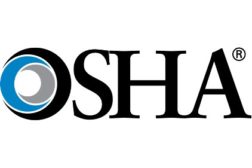Government Safety Regulations
Wants to lessen chances of another Chevron Richmond refinery fire
Read More
Washington Post accuses Obama administration of deliberately delaying rulemaking
Silica exposure limit one of the regulations mentioned in story
December 16, 2013
Two MSHA rules nearing completion
Black lung and crushing fatalities targeted
December 12, 2013
Safety complaints get worker fired
Former employer must pay back wages after retaliation lawsuit
December 6, 2013
OSHA wants your opinion
Public comments sought on on agency standards to improve chemical safety
December 6, 2013
Speeding up poultry lines would endanger food & worker safety, says coalition
Proposed FDA rule would also allow poultry companies to handle own inspections
November 25, 2013
Never miss the latest news and trends driving the safety industry
eNewsletter | Website | eMagazine
JOIN TODAYCopyright ©2024. All Rights Reserved BNP Media.
Design, CMS, Hosting & Web Development :: ePublishing







